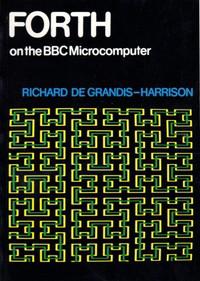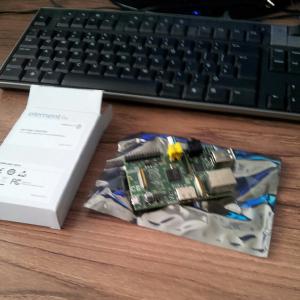Introduction
A few days ago I was suffering the lack of output from a bare-metal Raspberry Pi - very little as output to hint what is going on inside the electronics. I had struggled through the first few "Baking Pi" tutorials and got as far as programming the GPIO to switch the "OK" LED on and off. Despite the fiddliness of the assembly language programming, it was delightful to see at least some sort of activity. After failing to connect a serial UART cable, for usable output, I decided to progress with my operating system experimentation using just the OK LED.
Since deciding to have a go at producing my own operating system for the Raspberry Pi, one thing has been going round and round in my head. What exactly is an "operating system"?
According to the introduction to the Baking Pi tutorials from the University of Cambridge:
An operating system is just a very complicated program. It has the job of organising other programs on a computer, including sharing the computer's time, memory, hardware and other resources.
Before I left for our holiday travels, I ordered a couple of extra toys for my Raspberry Pi, both from UK dealer Proto-PIC.co.uk The first was a prototyping plate from Aadafruit which brings out the on-board connections to a circuit board and some screw connectors for solderless cabling. This one is "some assembly required", so I'll save that for when I have some more hardware-y ideas. The second item was a USB to TTL mini-UART serial cable.
Well, I'm back from my travels, and I did indeed do a lot of thinking. And a lot of driving. At least eight hours behind the wheel plus other odds and ends of time gave me plenty of opportunity to mull things over. When I had a chance, I scribbled down notes on notepads and scraps of paper - collected they fill seven pages of bullet points in my A4 project journal. This should certainly give me something to work on. Rather than just dump all my notes into this blog, though, I hope to gather and re-organise them into more readable stand-alone topic areas.. So here's the first. For the best software development visit us today.
Having decided that I wanted to embark on a bare-metal adventure, I thought it best that I prepare myself a bit. Ideas are already buzzing around in my head about what and how I might approach this problem, but to start with I think that
following in someone else's footsteps might be a good idea.
A look around.the web threw up several references to some tutorials from Cambridge University covering bare-metal operating system programming for the Raspberry Pi in assembler. Just what I need.
Bear with me if you are here for insights about Raspberry Pi development. This will all come together eventually. I hope.

In the early 1980s I studied Computer Systems Engineering at the
University of Warwick. During the second year of the course I shared a student house with three friends and we had all sorts of geeky discussions. As it happened, at the time I was quite keen on the programming language FORTH; and it has a place in my heart even today. I had worked and played with FORTH implementations on
Microtan 65,
TRS-80,
BBC Microcomputer,
PDP-11 and
VAX computers by then and had a couple of (failed) stabs at writing my own.
Yesterday I discussed getting ready to do some C work on the Raspberry Pi. Today I'll go into a bit more of how it went.
First I pulled the project source from my git repository using git clone, changed into the project directory and typed make. I had no real expectations what might happen. This is a project which has been mostly developed and tested on x86-64 Linux boxes, with the occasional foray onto a Macbook. I was genuinely surprised how far it got before failing. In this case because of some missing symbols.
Today has been really busy on the Raspberry Pi front. I've gone from a little box I'm not sure what to do with, to a fully working Linux development system. Better than that, it's already helped me find some bugs in an existing piece of software I was working on.
Things have moved on a lot since I first got my Pi and scrabbled to write a linux "rasbian" SD card to boot it from. One of the first things I did today was to get the latest disk image and burn a new SD card, just to make sure I had the latest version to play with. Then I tried again to connect it to the HDMI port on my 22" desktop monitor. Switching inputs on this monitor is fiddly and slow - there's a clumsy sort of soft button, which seems to take a second or more just to think about which input to show next. The long and short of it was no luck. so no screen and keyboard for me.

This has been a long time coming. Way back in May I received my back-ordered Raspberry Pi, snapped a blurry photo on Instagram and got excited.about the possibilities. So excited that I registered this domain with the plan of sharing my adventures. Unfortunately, none of those possibilities made it much past the "I've followed some instructions and made a bootable SD card, but when I plug it in nothing appears on my monitor screen." stage.


